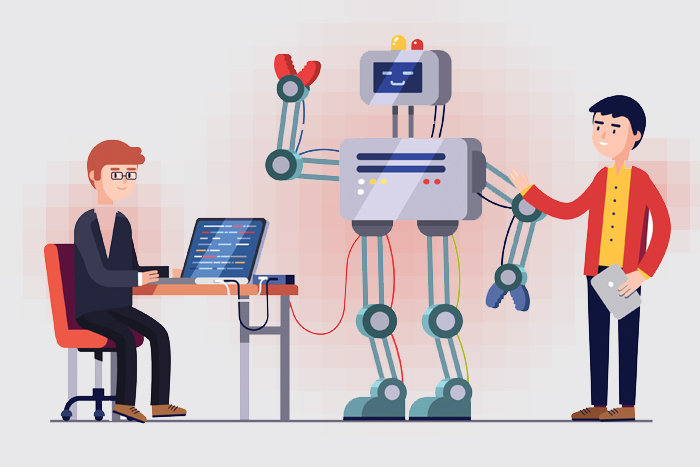Why AI will both increase efficiency and create jobs
There are legitimate concerns around AI and how it will impact the job market.
But the real impact will depend on how businesses leverage and implement AI tools to support employees, rather than replace them.
copyright by www.cio.com
Artificial Intelligence is already impacting every industry through automation and machine learning, bringing concerns that AI is on the fast track to replacing many jobs. But these fears aren’t new, says Dan Jackson, director of Enterprise Technology at Crestron , a company that designs workplace technology.
“I’d argue this is no different than when we moved from an agricultural to an industrial economy at the turn of the last century. The percentage of people working in agriculture significantly decreased, and it was a big shift, but we still have plenty of jobs 100 years later,” he says.
Anytime society experiences a major technological advancement, we need to be prepared for it to change the way we live and work. It’s hard to imagine what the future of jobs will look like with AI, but that future exists. And optimists suggest that, like the sewing machine to the textile industry, AI will make us better, more efficient and faster workers.
Overblown fears over AI
Antonis Papatsaras, PhD, AI expert and CTO at SpringCM , a contract and document management company, agrees that some concern is warranted, noting it’s “consistent with historical reactions to innovation.” Similar concerns were voiced during the Industrial Revolution, but they never held up — instead of replacing jobs, humans were needed to operate the machinery.
“Time after time, we see jobs adapt and shift,” he says.
Thank you for reading this post, don't forget to subscribe to our AI NAVIGATOR!
Adam Compain, CEO of ClearMetal , a predictive logistics company, agrees that most fears around AI are disproportional, and — if we’re being honest — based off movies and TV. Instead of focusing on the fictional “what-ifs” of AI, we should be building strategies to ensure AI doesn’t negatively impact employment.
“Artificial Intelligence is named so because it replicates […]
read more – copyright by www.cio.com


Why AI will both increase efficiency and create jobs
copyright by www.cio.com
Artificial Intelligence is already impacting every industry through automation and machine learning, bringing concerns that AI is on the fast track to replacing many jobs. But these fears aren’t new, says Dan Jackson, director of Enterprise Technology at Crestron , a company that designs workplace technology.
“I’d argue this is no different than when we moved from an agricultural to an industrial economy at the turn of the last century. The percentage of people working in agriculture significantly decreased, and it was a big shift, but we still have plenty of jobs 100 years later,” he says.
Anytime society experiences a major technological advancement, we need to be prepared for it to change the way we live and work. It’s hard to imagine what the future of jobs will look like with AI, but that future exists. And optimists suggest that, like the sewing machine to the textile industry, AI will make us better, more efficient and faster workers.
Overblown fears over AI
Antonis Papatsaras, PhD, AI expert and CTO at SpringCM , a contract and document management company, agrees that some concern is warranted, noting it’s “consistent with historical reactions to innovation.” Similar concerns were voiced during the Industrial Revolution, but they never held up — instead of replacing jobs, humans were needed to operate the machinery.
“Time after time, we see jobs adapt and shift,” he says.
Thank you for reading this post, don't forget to subscribe to our AI NAVIGATOR!
Adam Compain, CEO of ClearMetal , a predictive logistics company, agrees that most fears around AI are disproportional, and — if we’re being honest — based off movies and TV. Instead of focusing on the fictional “what-ifs” of AI, we should be building strategies to ensure AI doesn’t negatively impact employment.
“Artificial Intelligence is named so because it replicates […]
read more – copyright by www.cio.com
Share this: